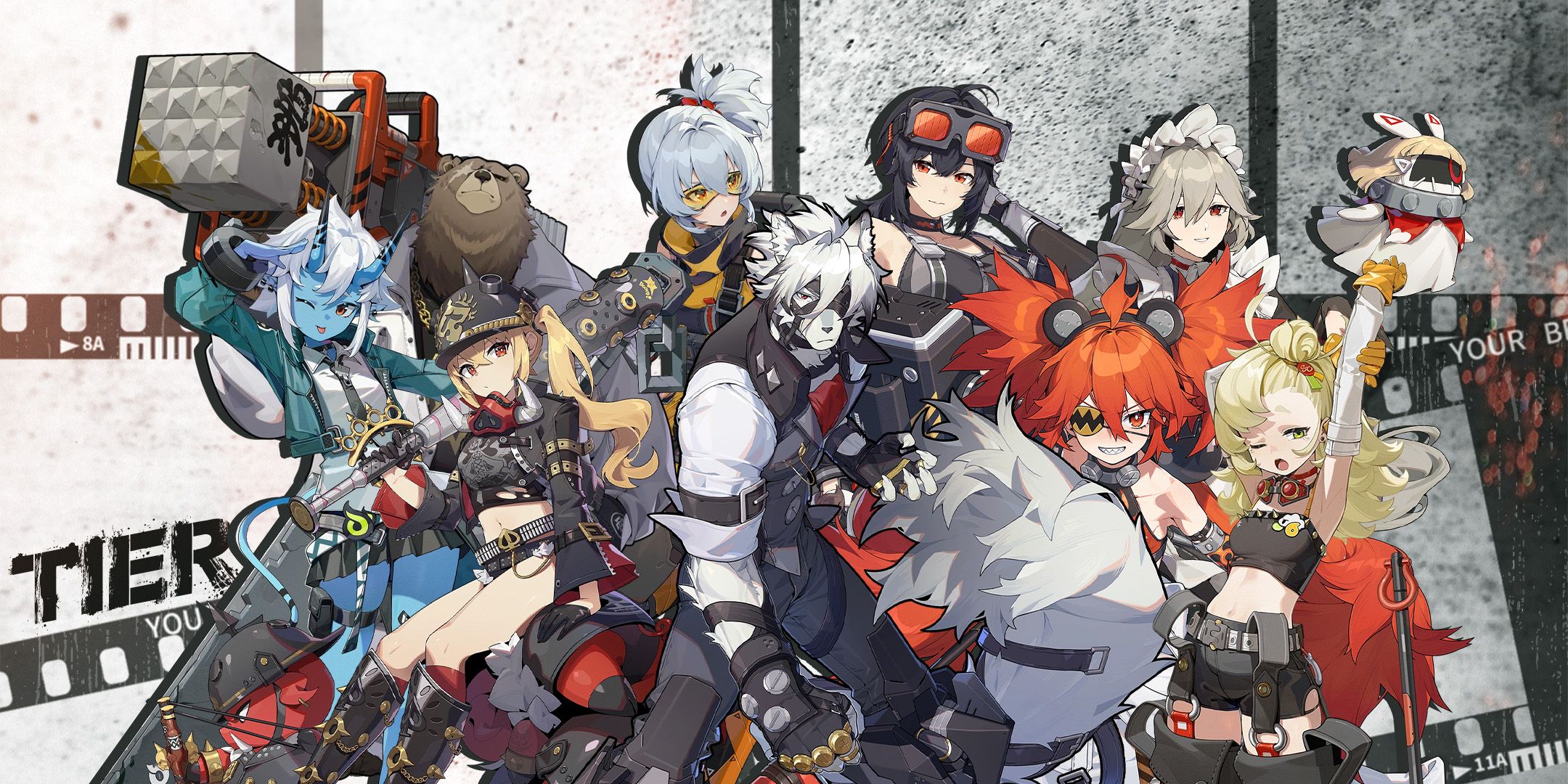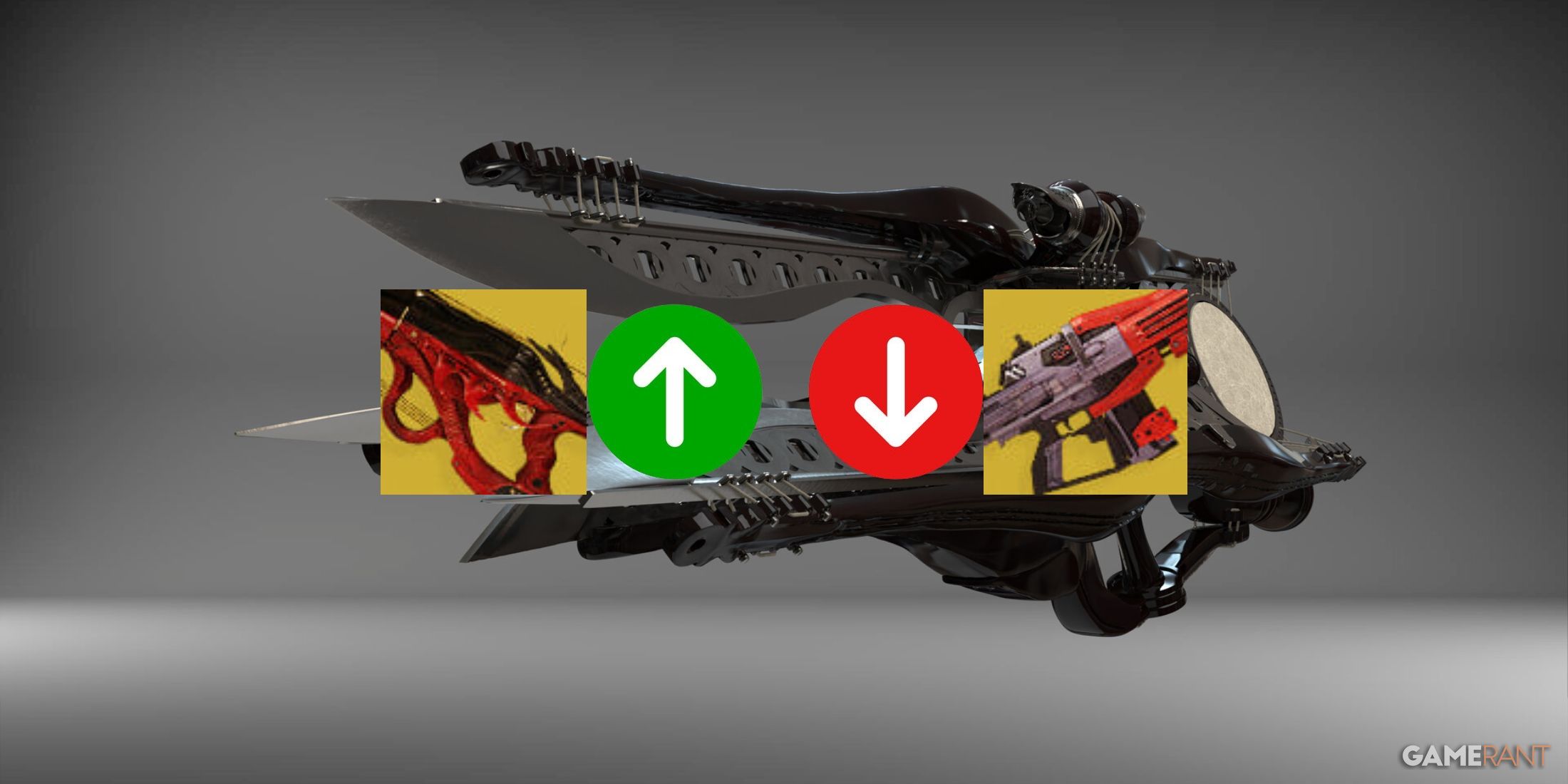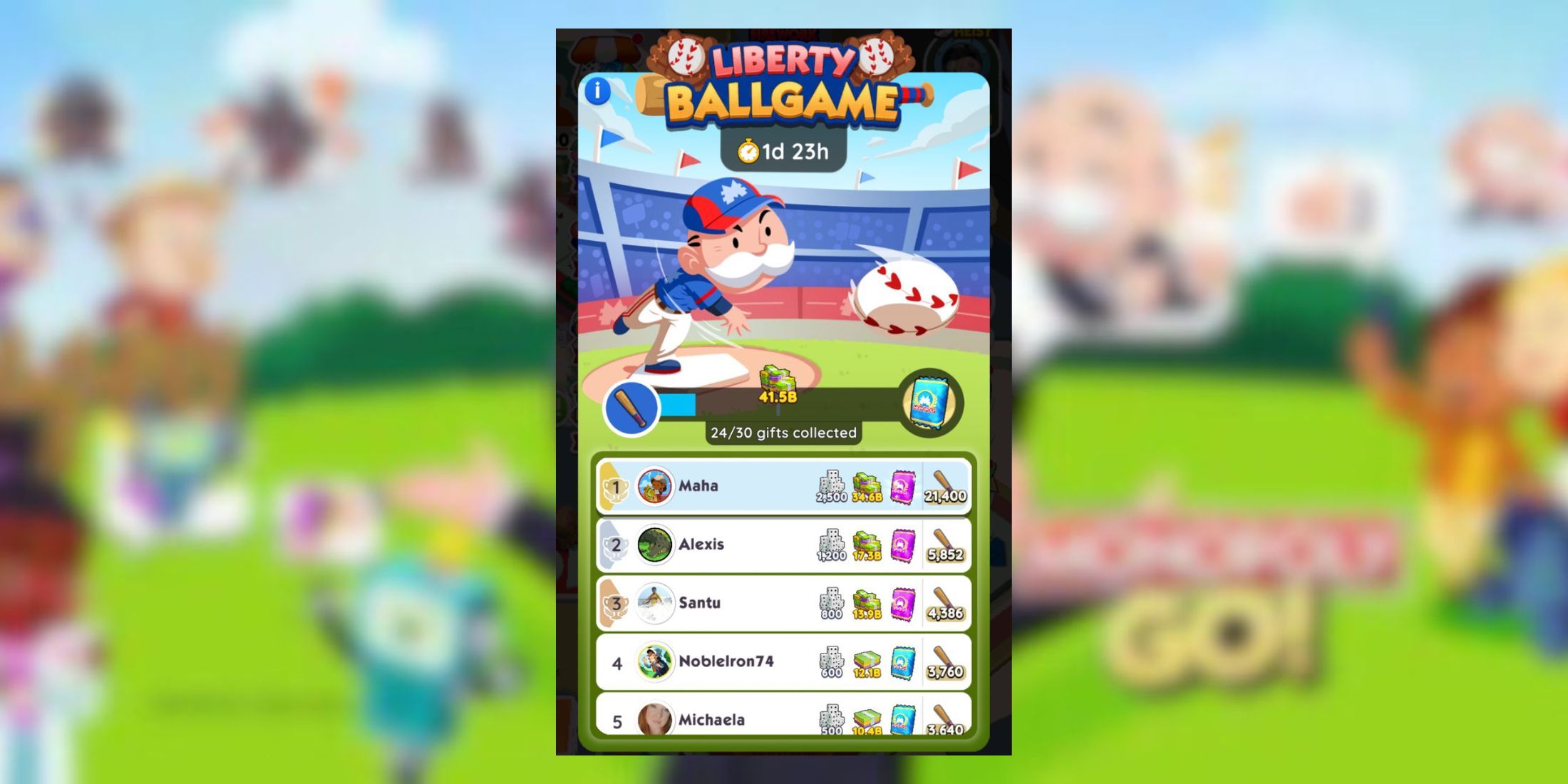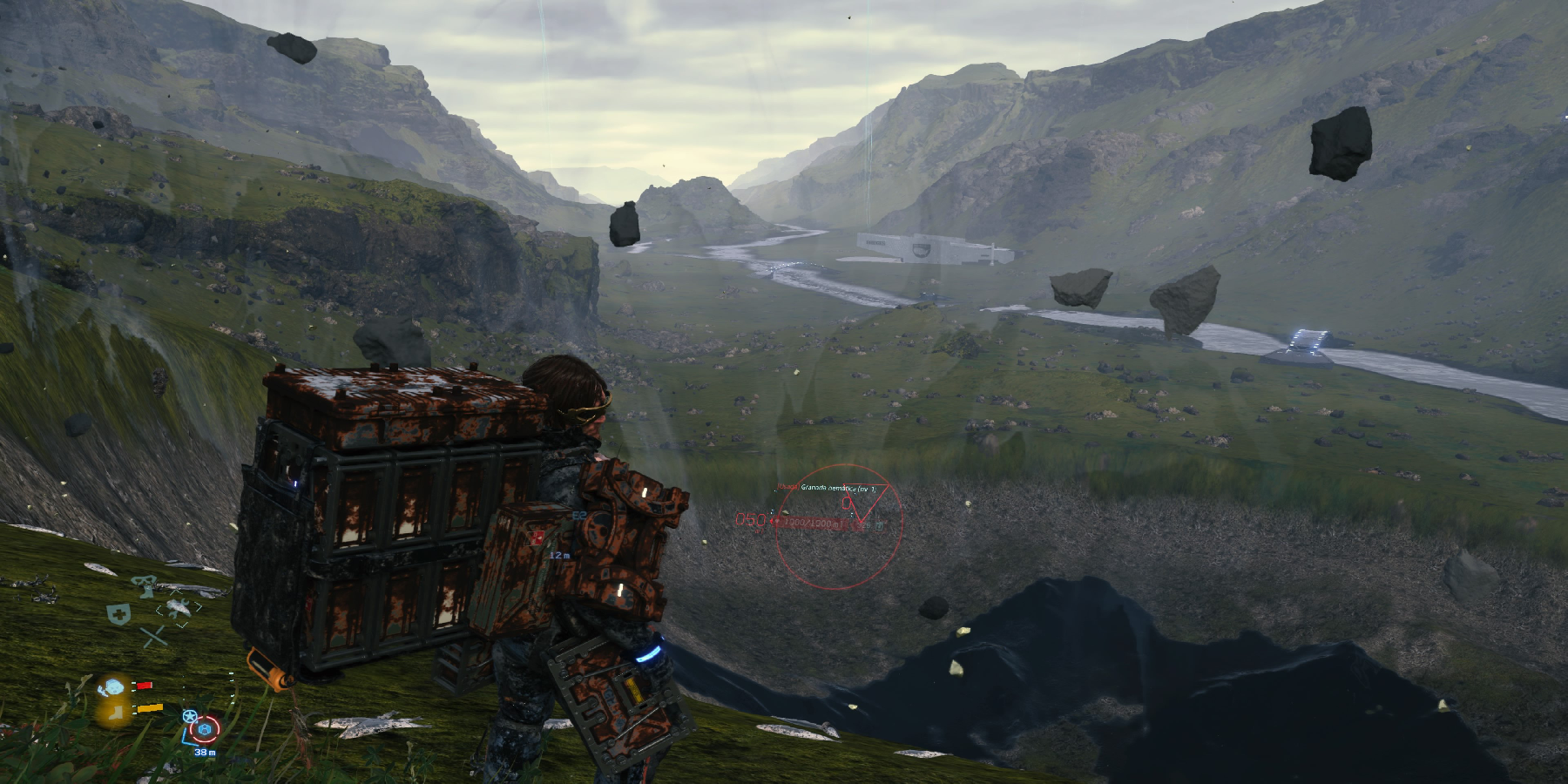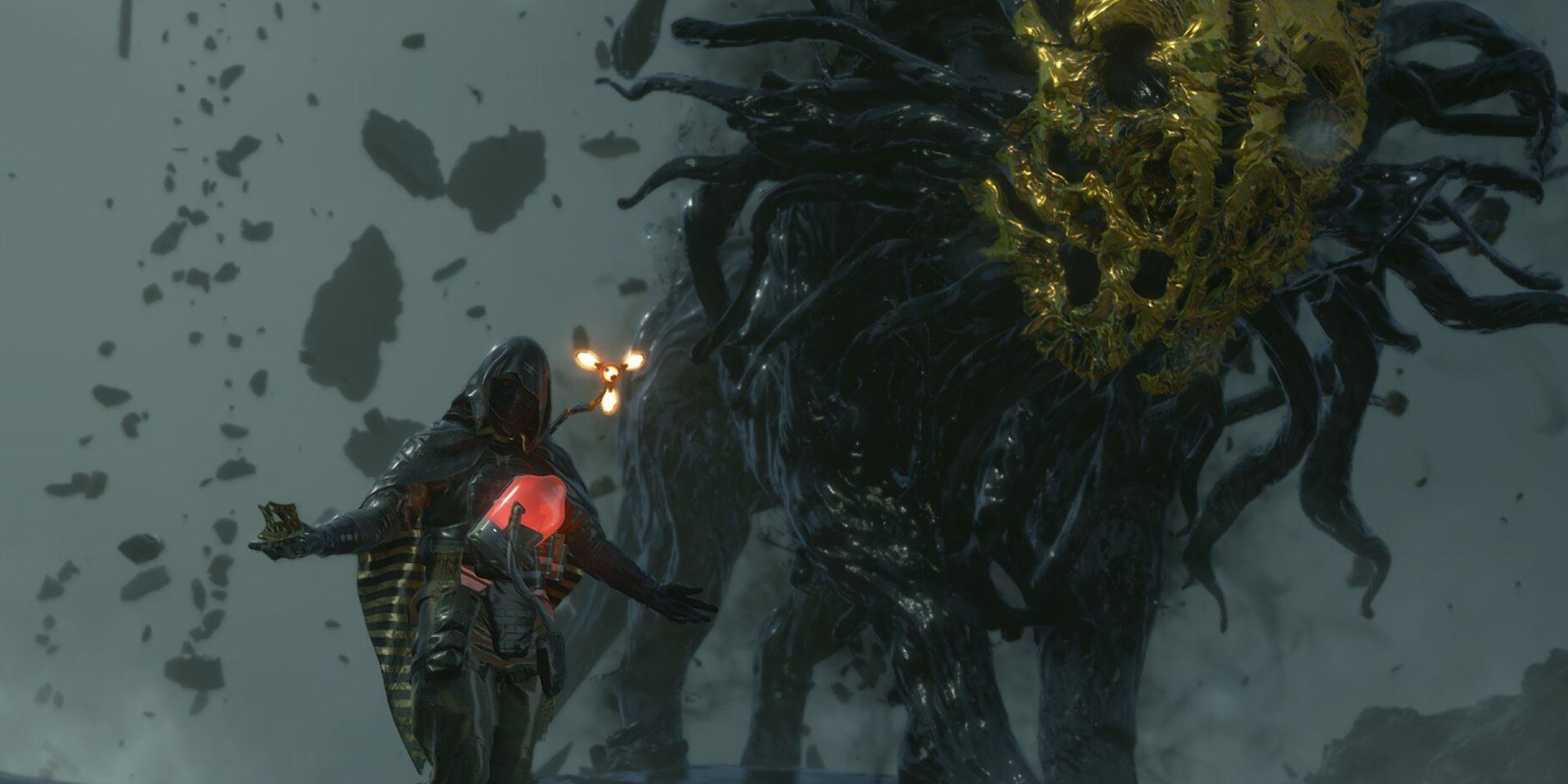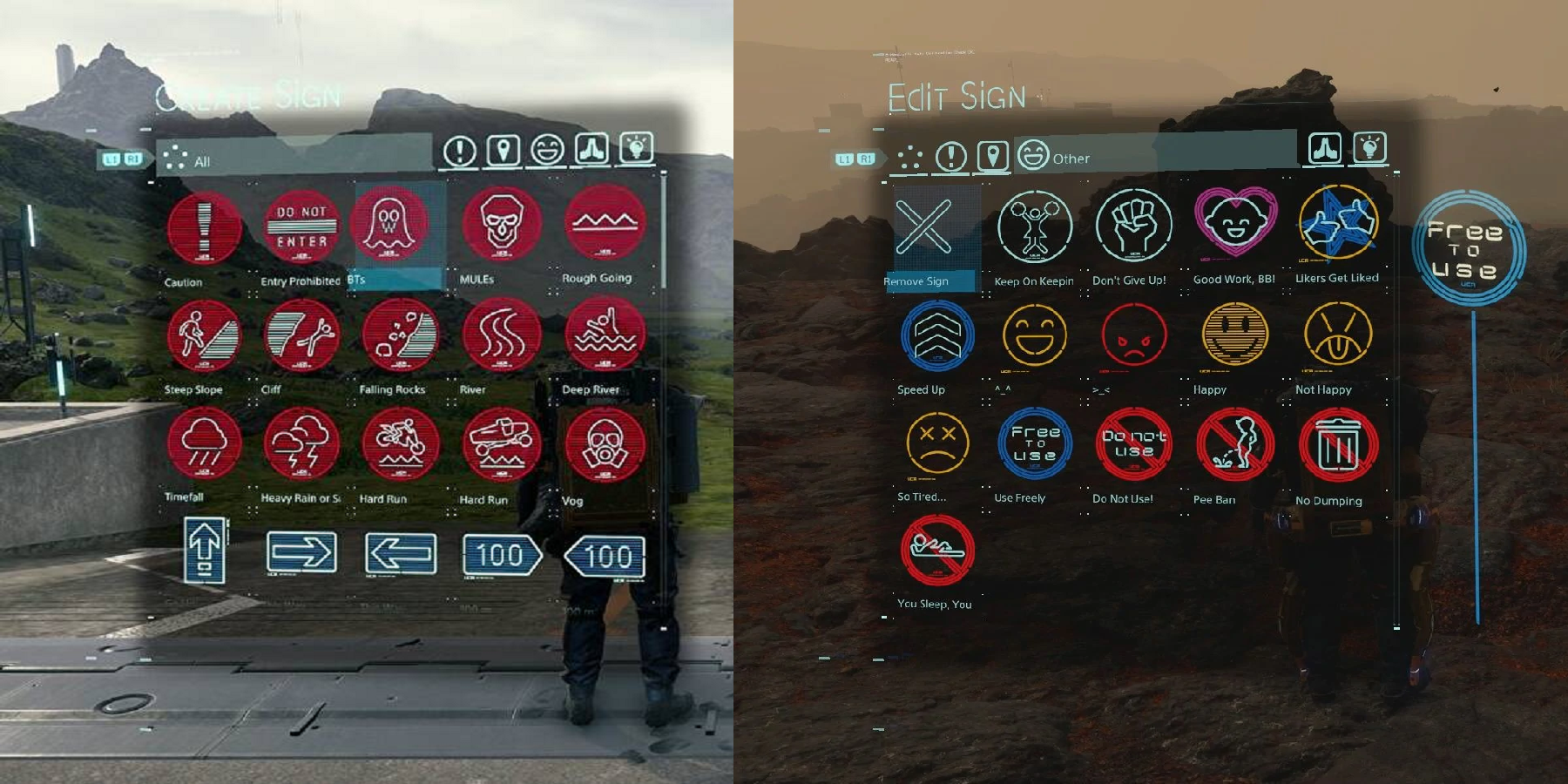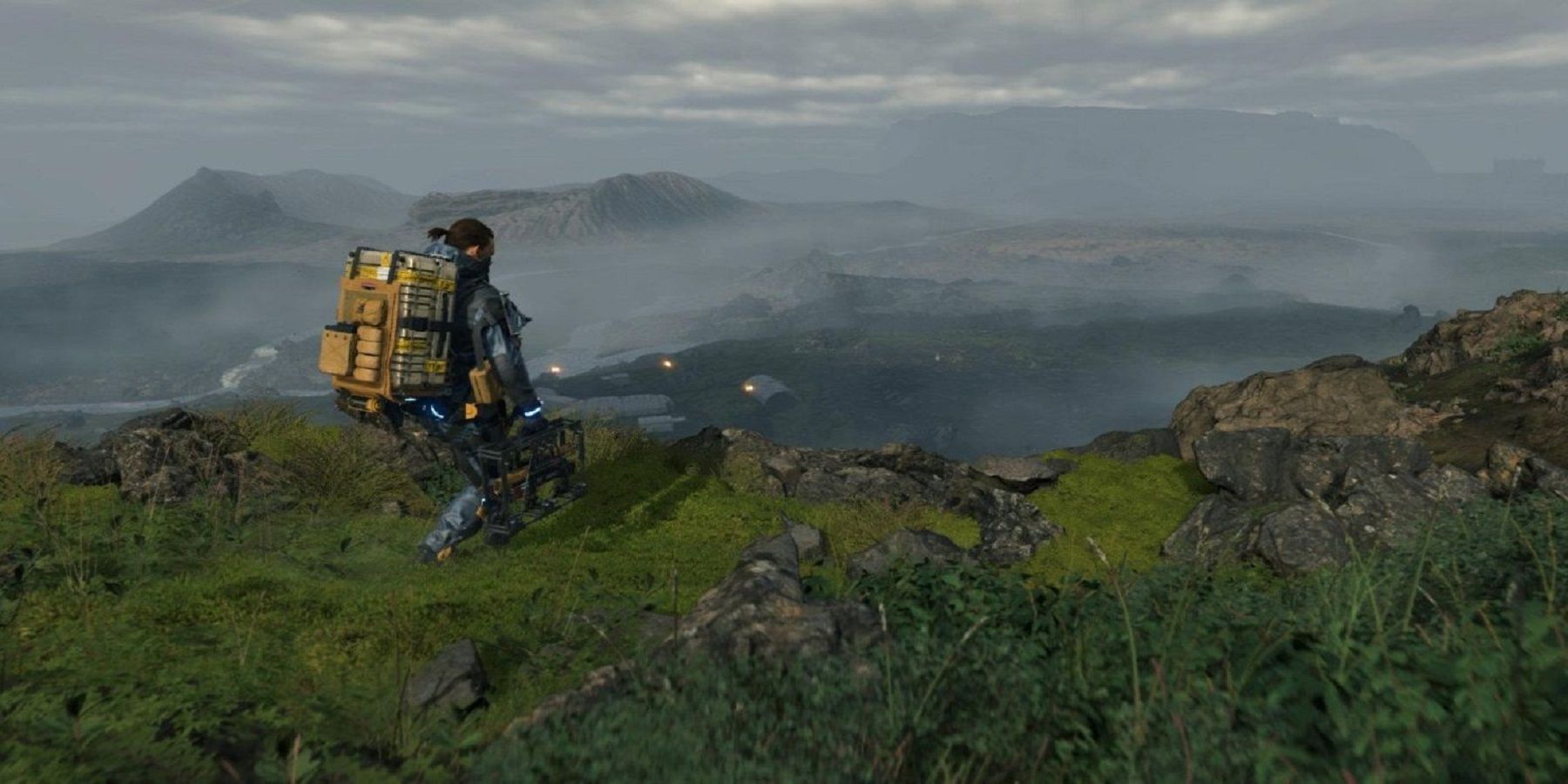The release of Death Stranding was the first attempt by Kojima Productions to popularize the newly-titled "strand" genre of gameplay, where the objective is furthered by social rewards and contributions instead of the usual gameplay tropes such as fighting and hunting. Now, with the news that Death Stranding is receiving a follow-up title, expectant players are awaiting improvements for "strand"-style games in the future.
"Strand" games were discussed extensively by director Hideo Kojima before Death Stranding's release, and while Kojima Productions achieved some unique things, there's room for growth. The game's design lends itself to being played in a paced and sociable way, so exploring different paths to present a strand genre game would strengthen Death Stranding's merits in the upcoming sequel.
What Similar "Strand" Games Get Right
Despite the best efforts of Kojima to pioneer Death Stranding's social strand system, games like Dark Souls retroactively fit the genre. This is due to a focus on "passive multiplayer" and artifacts that can help or hinder progress depending on how trustworthy the random players are. For example, Death Stranding promotes leaving signs behind that can benefit other players who may also be trying to traverse difficult terrain. This also prominently features in Dark Souls and other franchises, but with no ability to actually meet up with the other players in Death Stranding, the effect is often short-lived.
Since Death Stranding's release, big budget studios and indie developers alike have been trying to get involved with the strand genre of gaming. Games like the similarly-titled Witch Strandings build on concepts like nurturing and transportation which are utilized alongside the social strand aspects of Death Stranding, but achieved through a welcoming retro 2D style and smaller story scope. Kojima Productions' impressive visuals and map building could do with more substance to make Death Stranding a more enjoyable user-friendly experience where gamers can work together with others in real time without being distracted by microscopic terrain changes.
Dealing with Anti-Social Death Stranding Players
Since a lot of the signs in Death Stranding can only be used for motivation or guidance, some players may not feel the need to leave messages or otherwise immerse themselves in the social side. The variation in beating Death Stranding's story versus getting 100% means that non-completionists can easily miss any indication of players working together, rendering the social system completely redundant for certain gamers. The ability to work together with sociable people would ensure fewer players are limited by gamers choosing not to work with the strand players in a particular server.
Another improvable element in Death Stranding is the disconnect between helping other people and in-game rewards for doing so. Kojima's intention was to give players the choice whether they attempt to help people or not, but beating the game without regularly helping others is easily doable. Helping other people makes Death Stranding theoretically infinite since there will always be porters sharing paths, sending likes, or rebuilding structures for the benefit of random players, but adding more ways to incentivize 'Likes' in a dynamic way would compel more players to get involved directly.
Silence in An Immersive Social World
The strand genre encourages gamers to adapt to a tangible environment that feels like an equal threat to the player's enemies. The initial release achieves this goal somewhat, but Death Stranding: Director's Cut added a lot of new content to further motivate players, causing the noisy gadgets to subtract from the quiet experience. Specific gameplay sections require the use of more aggressive weaponry, but typical over-world progression is focused on stealth and avoiding enemies, so the introduction of more powerful guns, vehicles, and even a Race Track can split the player's interest. A sequel will need to find a new balance between this gear and Death Stranding's thoughtful social elements.
Kojima's aspiration to create an accurate open world that blended together social immersion was unfortunately muddled by conflicting gameplay elements. Regardless of individual criticisms, however, Death Stranding is still a uniquely immersive game that surpasses the typical "walking simulator" standard by daring to experiment with new ideas. A follow-up title that builds on the strong foundation of Death Stranding while preserving what was good about the original could be the formula for an even better sequel for Kojima Productions, and the strand genre as a whole.
Death Stranding is available now on PC, PS4, and PS5.

